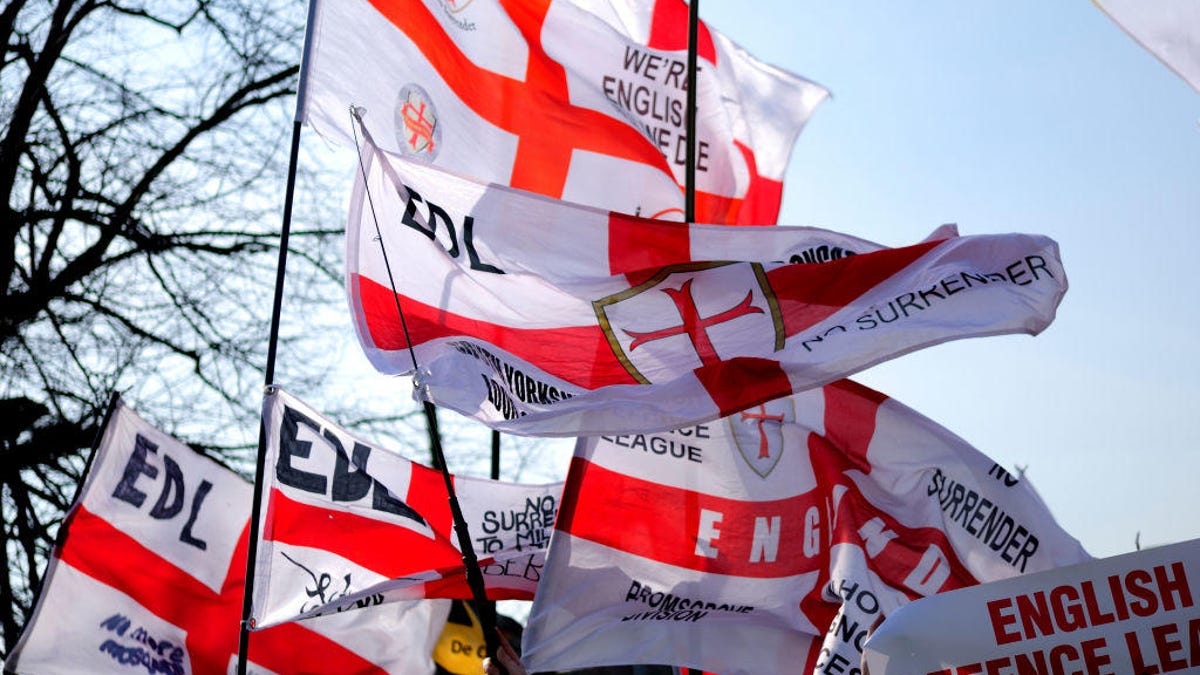Facebook bans 12 'dangerous' British far-right groups and individuals
The ban affects Nick Griffin and the British National Party, as well as Britain First and the English Defence League.

Some far-right groups in the UK are now outlawed on Facebook.
Facebook banned a handful of prominent British far-right groups on Thursday, as part of the implementation of its "dangerous organizations and individuals" policy.
In total 12 people and groups were outlawed by the social network, including the British National Party (BNP) and its president Nick Griffin, Britain First, the English Defence League, Knights Templar International and the National Front. Co-founder of the English Defence League Tommy Robinson is already banned under the same policy.
"Individuals and organizations who spread hate, or attack or call for the exclusion of others on the basis of who they are, have no place on Facebook," said a spokeswoman for the company in a statement. "Our work against organised hate is ongoing and we will continue to review individuals, organizations, pages, groups and content against our Community Standards."
The ban applies not only to the individuals and groups, but to posts and other content that express praise or support for them.
Its introduction follows criticisms made as part of a Channel 4 documentary last year that said Facebook wasn't doing enough to stem the flow of far-right hate on the platform. Facebook, Instagram, Twitter and YouTube have all come under pressure in the UK, the US and elsewhere to prevent the spread of hate speech. But they've had to simultaneously work out how to balance banning groups and individuals with free speech concerns.

